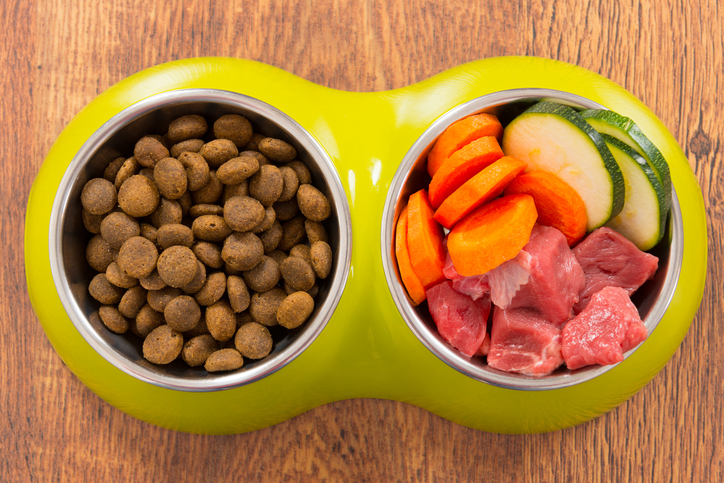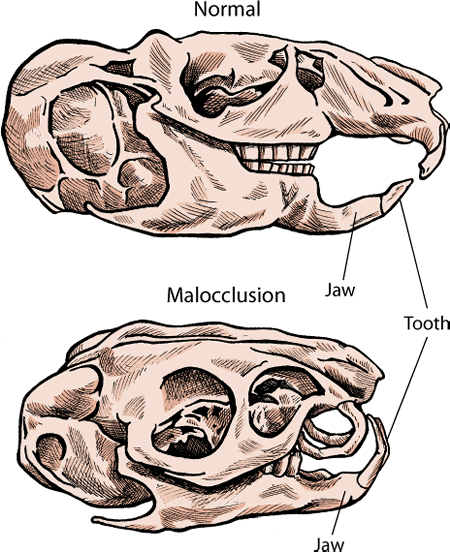Routine Health Care for Chinchillas
Pet chinchillas are typically seen by veterinarians for conditions related to age, trauma, or improper care. Infectious diseases are more common in colony animals raised for fur production than in pets. Viral diseases are uncommon. Tumors in chinchillas are very rare.
Routine Care of Your Chinchilla
Signs of Illness
The chinchilla’s overall appearance and behavior can provide clues to its well-being. It is a good idea to monitor your pet regularly for signs of illness. Sick chinchillas may show weight loss, hunched posture, scruffy hair coat, labored breathing, or difficulty walking normally. They may stop eating, have no energy, or not respond to stimulation. Respiratory conditions and digestive problems are the most common illnesses and may be signaled by discharges from the eyes and nose or diarrhea. Feet should be examined for sores or broken nails. Teeth may be discolored or overgrown. Ears should be examined for discharges or inflammation and eyes for discharges or conjunctivitis. The lower jaw and chin should be examined for swellings. Difficulty breathing and abnormal breath sounds should be noted.
Chinchillas produce 2 kinds of fecal pellets. One type is rich in nitrogen, and the chinchilla will normally eat these pellets. There is nothing wrong with your chinchilla if you observe this behavior.
Disease Treatment and Prevention
Sick chinchillas are easily stressed and should be handled very little. Although antibiotics are valuable medications against harmful bacteria, they are not well tolerated by chinchillas and can cause digestive problems. Oral medications or fluids can be given with a small syringe or eyedropper. If your pet is able to eat, medications can be mixed with food or water. Some medicines may have to be given intravenously, however. Dry animal droppings, dark urine, and skin tenting are signs of dehydration. Consult your veterinarian about how to replace the fluids in your dehydrated animal. Animals with a severe loss of appetite may require force feeding by syringe, which should be performed or supervised by a veterinarian.
Dental Care
A chinchilla’s teeth are very important to its health. Tooth abnormalities are common in chinchillas. Drooling or a constant wet area under the chin (sometimes called slobbers) are signs of a dental problem. Uneven positioning of the upper and lower teeth when the jaw is closed is known as malocclusion. Malocclusion leads to poor use of food, rough hair coat, loss of appetite, and weight loss. Often, drooling results in loss of fur and swelling of the skin on the chin and neck. Lack of regular veterinary check-ups may lead to dental diseases.
Overgrown teeth or tooth roots can elongate and become impacted. In addition, the tooth surfaces may become sharp and can irritate the lining of the cheeks and the tongue. The appearance of mucus or pus or discharge from the eyes and nose may be signs of tooth overgrowth and malocclusion. Chewing becomes increasingly difficult, and severe malnutrition may lead to low blood sugar levels and ultimately seizures, paralysis, coma, and death. Premolar and molar teeth may be loose, broken, or sharply pointed. Sometimes feed or foreign bodies are wedged between the teeth and the gums.
During regular veterinary checkups, the chinchilla’s mouth should be thoroughly examined. X-rays can be used to check tooth position and look for overgrowth of the roots. Malocclusion is a condition requiring monthly care to guard against infection or disease. Treatment involves trimming and filing teeth, removing food or foreign bodies from the teeth, and cleaning any sores on the gums. Because chinchilla teeth grow constantly, appropriate materials (such as pumice stones or chew blocks) to gnaw are required. A commercial pelleted diet should provide adequate nutrition for preventing most dental diseases. However, the diet should also contain foods such as straw, hay, and gnawable items for optimal dental health. Teeth and body weight should be frequently monitored to avoid further problems. While individual chinchillas with malocclusion can be managed by careful observation and dental treatment, they should not be bred.






